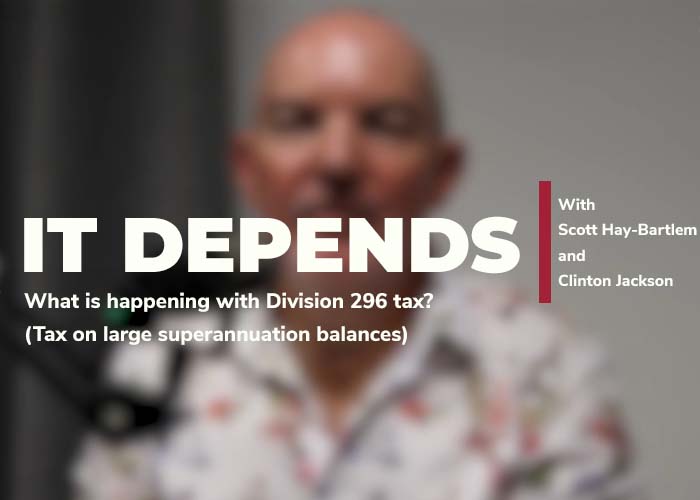It is common for commercial contracts to contain ipso facto clauses, which allow a party to terminate or modify the terms of the contract where the other party experiences an insolvency event. A concern addressed by the Government is that these clauses can prevent a financially distressed company from turning their situation around.
The Treasury Laws Amendment (2017 Enterprise Incentives No 2) Act 2017 received royal assent on 18 September 2017. The ipso facto provisions of the Act will commence on 1 July 2018 (unless an earlier commencement date is proclaimed).
Significantly, the ipso facto provisions in the Act will not apply to contracts made or amended before the commencement date.
How the ipso facto provisions in the Act will work
Part 2 of the Act contains provisions intended to restrict a counterparty from exercising contractual rights (such as refusing to continue to perform contractual services or terminating the contract) for the reason that the other party has suffered certain types of insolvency events. These include:
- a compromise or arrangement (or the announcement of one) under section 411 of the Corporations Act 2011 (Cth);
- appointment of a managing controller to the whole or substantially the whole of the corporation’s property; and
- voluntary administration.
Self-executing provisions that automatically terminate or amend existing rights due to a specified insolvency event are also caught.
The provisions will extend to specific reasons (to be prescribed by regulations) and, critically, also include a catch-all provision, prohibiting the enforcement of a right if, in substance, it is contrary to the intention of the Act.
There are stay provisions in the Act.
The restraints will not apply to all contracts, as exceptions have been made for certain financial products including swaps and loans and other such agreements (at the discretion of the Government).
There is a carve-out for the exercise of rights by a secured creditor during the ‘decision period’ in a voluntary administration.
Protecting your commercial interests after the commencement date
Even though the ipso facto provisions will only apply to contracts, agreements or arrangements entered into at or after the commencement date, it would be prudent going forward to review your precedent contracts. Check whether there are appropriate clauses to protect your legitimate commercial interests, particularly clauses detailing the performance of contractual obligations and appropriate default clauses.
The ipso provisions in the Act will apply to contractual rights that arise because of the specified insolvency events. They will not apply, for example, to a termination for convenience clause or a right to terminate for a failure to perform contractual obligations unrelated to the insolvency events.
However, it should be noted that the Government has the power to make regulations that prevent the drafting of contracts with the purpose of attempting to avoid the intentions of the Act.
How the provisions in the Act, and specifically, the catch-all provisions, will be interpreted in circumstances where contracting parties attempt to terminate contracts for defaults of clauses that could arguably be the ‘reason’ behind the insolvency event remains to be seen.
Risks of purporting to exercise a contractual right in contravention of the Act
A contracting party wrongly purporting to exercise a right in contravention of the Act risk a stay application being brought against them.
They could also potentially be exposed to a counterclaim by the ‘insolvent’ company alleging that they have wrongly repudiated the contract, entitling the ‘insolvent’ company to terminate the contract and sue for damages.
A contracting party should obtain legal advice before seeking to exercise a right under the contract (which may potentially be linked to an insolvency event) to ensure they will not breach the ipso facto provisions in the Act.
It would also be prudent to carefully stipulate the grounds being relied upon, for example, to issue a notice to remedy breach or to exercise a right of termination, to guard against the risk of being ensnared by the ipso facto provisions.
A contract containing tailored clauses detailing the performance of contractual obligations and expansive default clauses will assist to protect your commercial interests. What is appropriate will depend upon the subject matter of the contract.
Managing your contract
It is clear, going forward, that a contracting party will need to be proactive in managing the contractual performance of the other party, particularly if there are concerns about the financial position of the other party.
Comment
When the ipso facto provisions commence, there are likely to be court decisions that will lay down the ground rules as to what will be caught by the provisions.
However, before then, it would be prudent for commercial contract managers to review their existing contracts to ensure there are appropriate provisions in their contracts to protect their legitimate commercial interests.
After the commencement date you should obtain legal advice before sending any communication or demand purporting to exercise a contractual right (that may be potentially caught by the ipso facto provisions).
If you would like more information about these provisions and how to protect your interests under your contracts, please contact Graham Roberts on +61 7 3231 2404.



